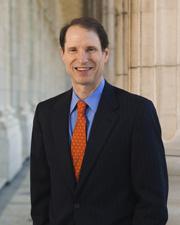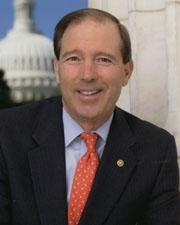0
Employment Non-Discrimination Act of 2013
3/14/2024, 12:48 PM
Congressional Summary of S 815
Employment Non-Discrimination Act of 2013 - (Sec. 4) Prohibits covered entities (employers, employment agencies, labor organizations, or joint labor-management committees) from engaging in employment discrimination on the basis of an individual's actual or perceived sexual orientation or gender identity.
Declares that it shall be unlawful for an employer, because of an individual's actual or perceived sexual orientation or gender identity, to: (1) fail or refuse to hire, to discharge, or to otherwise discriminate with respect to the compensation, terms, conditions, or privileges of employment of such individual; or (2) limit, segregate, or classify employees or applicants in any way that would deprive any individual of employment or adversely affect an individual's status as an employee. Prohibits employment agencies, labor organizations, and training programs from engaging in similar practices that would adversely affect individuals based on such actual or perceived orientation or identity.
Specifies that such unlawful employment practices include actions based on the actual or perceived orientation or identity of a person with whom the individual associates.
Prohibits certain employment actions from being considered unlawful with respect to volunteers who receive no compensation.
Prohibits a covered entity from granting preferential treatment or implementing quotas on the basis of such actual or perceived orientation or identity.
Limits the claims authorized to be brought under this Act to disparate treatment claims (thereby specifying that disparate impact claims are not provided for under this Act).
Places the burden of proof on the complaining party to establish such an unlawful employment practice by demonstrating that sexual orientation or gender identity was a motivating factor for any employment practice, even though other factors also motivated the practice.
(Sec. 5) Prohibits a covered entity from discriminating against an individual who: (1) opposed such an unlawful employment practice; or (2) made a charge, testified, assisted, or participated in an investigation, proceeding, or hearing under this Act.
(Sec. 6) Makes this Act inapplicable to corporations, associations, educational institutions or institutions of learning, or societies exempt from the religious discrimination provisions of the Civil Rights Act of 1964 (thereby establishing a religious employer's exemption).
Prohibits a federal agency, or any state or local agency that receives federal funding or financial assistance, from: (1) penalizing or withholding licenses, permits, certifications, accreditation, contracts, grants, guarantees, tax-exempt status, or any benefits or exemptions from an exempt religious employer; or (2) prohibiting a religious employer from participating in programs or activities sponsored by such agency.
Prohibits the religious employer's exemption and related requirements from invalidating any other federal, state, or local law or regulation that otherwise applies to a religious employer.
(Sec. 7) Makes this Act inapplicable to the relationship between the United States and members of the Armed Forces.
Declares that this Act does not repeal or modify any federal, state, territorial, or local law creating a special right or preference concerning employment for a veteran.
(Sec. 8) Prohibits this Act from being construed to: (1) prohibit an employer from requiring an employee to adhere to reasonable dress or grooming standards, or (2) require the construction of new or additional facilities.
(Sec. 9) Prohibits the Equal Employment Opportunity Commission (EEOC) and the Secretary of Labor from compelling collection or requiring production of statistics from covered entities on actual or perceived sexual orientation or gender identity pursuant to this Act.
(Sec. 10) Provides for the administration and enforcement of this Act, including by giving the EEOC, Librarian of Congress, Attorney General (DOJ), and U.S. courts the same enforcement powers as they have under specified provisions of the Civil Rights Act of 1964, Government Employee Rights Act of 1991, Congressional Accountability Act of 1995, and other laws granting rights and protections to certain applicants and employees.
Prohibits an individual who files claims alleging an unlawful employment practice under this Act in addition to alleging an unlawful employment practice because of sex under the Civil Rights Act of 1964 from receiving double recovery under both Acts.
Authorizes the court, in a case in which sexual orientation or gender identity was proven to be a motivating factor but the respondent then demonstrates that the same action would have been taken in the absence of the impermissible motivating factor, to grant declaratory relief, injunctive relief, and attorney's fees and costs demonstrated to be directly attributable only to the pursuit of the claim. Prohibits the court, in such an instance, from awarding damages or issuing an order requiring any admission, reinstatement, hiring, promotion, or payment.
(Sec. 11) Allows actions and proceedings, subject to exception, against the United States and the states. Declares that a state's receipt or use of federal financial assistance for specified programs or activities constitutes a waiver of sovereign immunity to a suit brought by an employee or applicant for employment of that program or activity. Prohibits punitive damages from being available in actions and proceedings against states or the United States and limits compensatory damages in such cases to the extent specifically authorized.
(Sec. 12) Permits a decisionmaker (other than the Attorney General) in an action or administrative proceeding under this Act to allow the prevailing party (other than the EEOC or the United States) a reasonable attorney's fee (including expert fees) as part of the costs, to the same extent as is permitted under specified civil and employee rights laws. Requires the EEOC and the United States to be liable for costs to the same extent as a private person.
(Sec. 13) Provides authority for amended employee notices to be posted in employee areas for purposes of this Act, but does not require the posting of a separate notice.
(Sec. 15) Prohibits this Act from invalidating or limiting the rights, remedies, or procedures available to an individual claiming discrimination prohibited under any other federal, state, or political subdivision laws.





